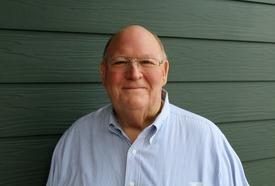What Are "GUYS"?

Al_Howard
Posts: 9,935 Member
Replies
-
Interesting, I always enjoy learning word origin.
I thought guy was male and gal was feminine. I learned guy is both. I looked up gal and found that gal is Cockney for girl.
Years ago My DW was Jazzercise Instructor and called the female class members and referred to them “guys” when she spoke to them. I remember someone complaining about being called guys. Now I know she was right. LoL
0 -
Fun. Thank you for sharing.0
-
It seems the use of guys for both genders has increased greatly in the last few decades especially among women who often refer to their group as "guys". The Guy Fawkes origin of the term was rather interesting.0
-
Thanks for sharing. 🙂0
-
In many languages including French, Spanish (ellos), and English "guys" refers to either a pural of males or mixed company. It is a bit more appropriate not to refer to a female by herself as a "guy" in most languages. It is difficult to know what women want to be called. Some like "gal" and others don't. Most don't like being called "girl" when they are adults for sure. Some take umbrage at being called "lady" too. Awkward for sure.0
-
In many languages including French, Spanish (ellos), and English "guys" refers to either a pural of males or mixed company. It is a bit more appropriate not to refer to a female by herself as a "guy" in most languages. It is difficult to know what women want to be called. Some like "gal" and others don't. Most don't like being called "girl" when they are adults for sure. Some take umbrage at being called "lady" too. Awkward for sure.
The evolution of language, as it correlates to cultural changes, is fascinating. On the one hand, language changes often trail cultural changes. But, in other cases, language changes can drive cultural changes. We all act as if politically correct speech is a new thing; but, it's not. It's been happening for millenia - just not as well documented and affecting many fewer people.
The history of English, alone, is an amazing amalgam of the effects of war, class, and a battle for language domination (e.g., English vs French vs German vs Welsh vs Scots) - within the language itself. Fascinating stuff.
0 -
I'm a guy and I agree with what Podkey said.0
-
I often wonder how difficult it is to learn how to speak English with all the pronunciation “rules”?!?
Like how to pronounce these two words that are different but look alike:
Baked
Naked
I took Spanish in HS and college but never tried to speak it.
I lived in Germany five years (89-93)
But only learned how to order ein bier LoL.
I enjoy word history and usage.0
This discussion has been closed.





